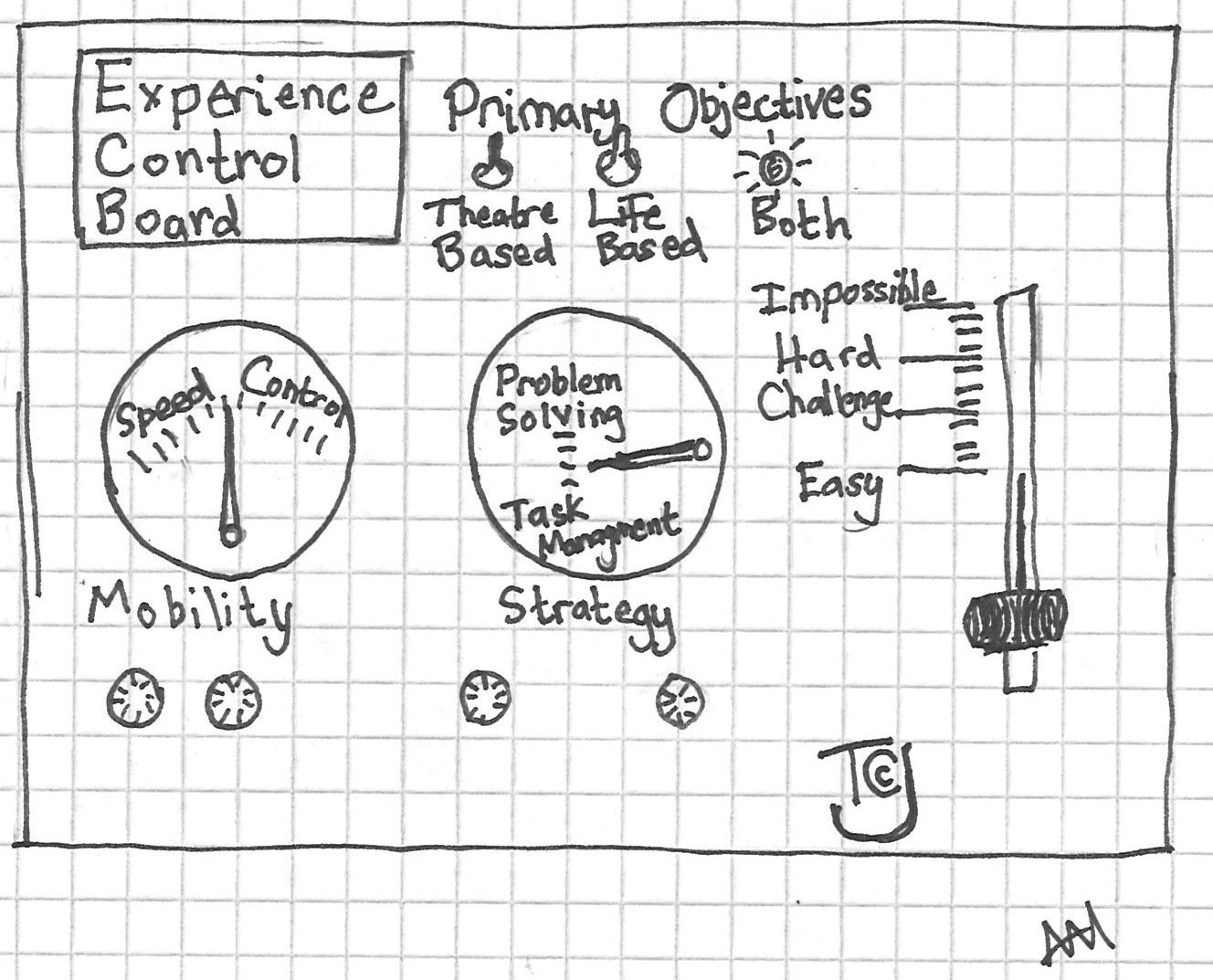Issue #4 - The Control Board
Someone recently asked me, "How do you adapt and change games for so many repeat campers while still keeping games playable for new campers?"
I answered with the control board.
My background in theatre education started with theatre before education, and I have a passion for directing. I subscribe to two specific directing techniques:
- Picturization - Everything needs to make a lasting picture. I'm a visual person, so this is how I operate on a regular basis.
- Organic Directing - This is the idea that says we will discover the elements of the play as we practice it. We figure out the blocking (movement on stage) as the scene develops and then try to replicate it the next time we rehearse.
- I am not the world's best type "A" personality. I have my moments, and I like organization and order as much as the next person, but I will always be more type "B". I prefer the process of exploration to put something together, and I tend to believe that if every detail is planned out, you won't get as good of an experience. I like to see what we will discover. This can lead to complete chaos, and that could be disastrous for some people and has even been disastrous for me... but not nearly disastrous enough, I guess.
This brings me to the control board. After a few years of teaching, I started to realize
that student learning is more successful when students realize the lessons on their timetable instead of my timetable (This is a lesson I tend to forget and am always relearning.). My process has started to shift to "What can I do to challenge or lead my students to the lessons they need to learn?"
I imagine that I sit at a big control board, and in front of me are the levers I operate to devise the best lessons. Sometimes, this means turning the challenge dial up to a point where they will not succeed immediately, but the failure could give them the opportunity to be better prepared next time. Sometimes, it is watching a game and realizing that one person is monopolizing the experience, while another person has perfectly good ideas that are being ignored. In that case, I work to balance out the experience by moving the lever that shifts game play to where the quiet person has the ability to share and try out their ideas.
It all comes back to time and experience.
I am a firm believer that the process is more valuable than the product. In that way, you might say that I am a poor theatre director. I feel that people need hands-on experience to learn, and the games we use offer a consequence-free experience where campers have permission to fail. Hopefully, when confronted with real life situations, they will draw on their experiences and replicate the actions that have brought them success in the games.
To operate your own control panel, you will need to decide what is important to you. What is the mission of your program?
At the George Daily Auditorium, the Youth Theatre's mission is to use theatre as a tool to promote the growth of skills in collaboration, creativity, communication, critical thinking, confidence, citizenship, and personal responsibility.
If you know your "why," you will create a better "how."

